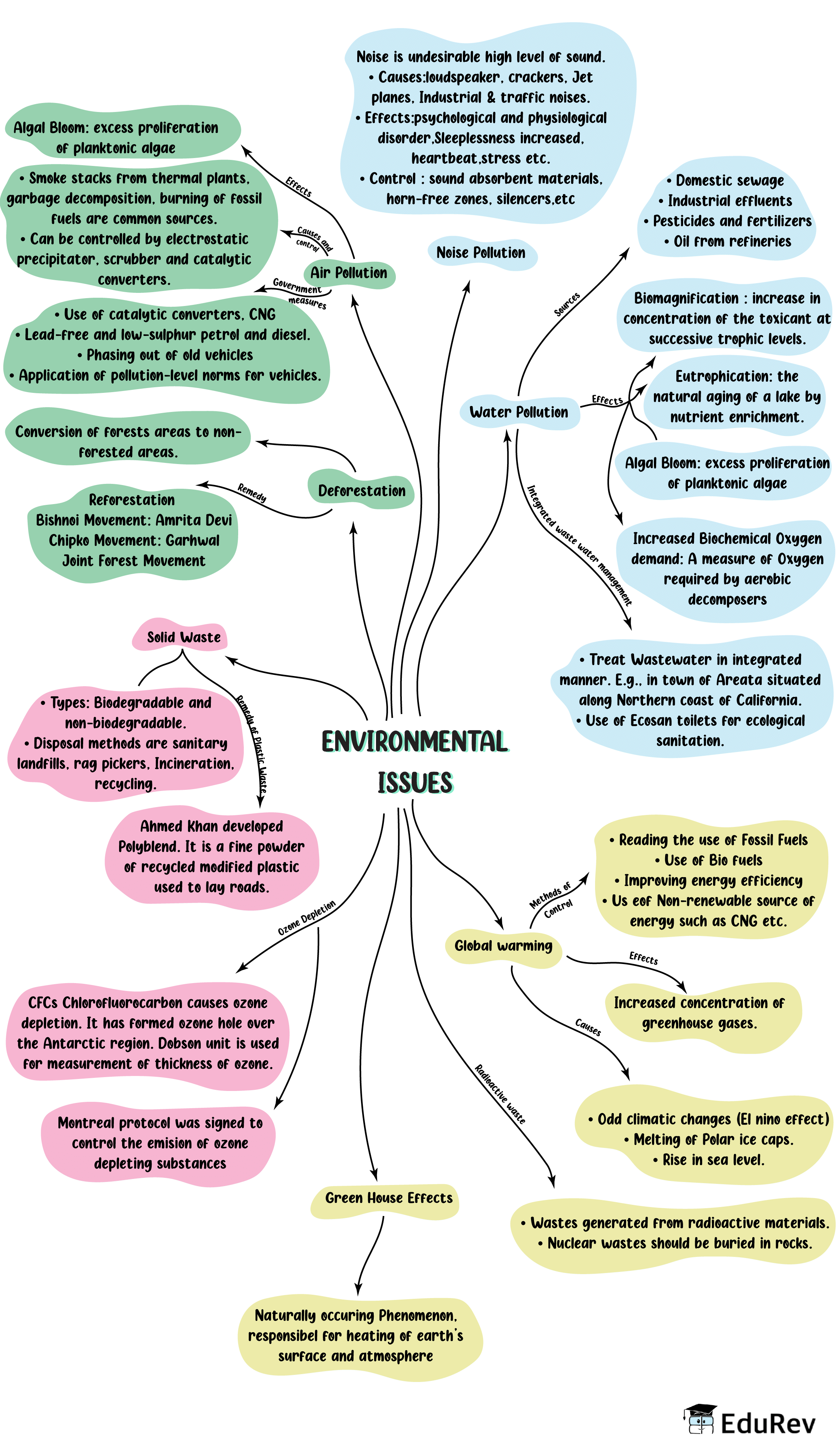UPSC Exam > UPSC Notes > Class 6 to 12 NCERT Mindmaps for UPSC Preparation > Mind Map: Environmental Issues (Old NCERT)
Mind Map: Environmental Issues (Old NCERT) | Class 6 to 12 NCERT Mindmaps for UPSC Preparation PDF Download

The document Mind Map: Environmental Issues (Old NCERT) | Class 6 to 12 NCERT Mindmaps for UPSC Preparation is a part of the UPSC Course Class 6 to 12 NCERT Mindmaps for UPSC Preparation.
All you need of UPSC at this link: UPSC
FAQs on Mind Map: Environmental Issues (Old NCERT) - Class 6 to 12 NCERT Mindmaps for UPSC Preparation
| 1. What are the main causes of deforestation? |  |
Ans. Deforestation is primarily caused by human activities such as logging, agriculture expansion, mining, and urbanization. These activities result in the clearing of forests for timber, making space for crops or livestock, extracting minerals, and building infrastructure.
| 2. How does air pollution impact human health? |  |
Ans. Air pollution can have severe consequences on human health. Breathing polluted air can lead to respiratory problems, such as asthma, bronchitis, and lung cancer. It can also worsen existing conditions like heart disease and cause premature death. Additionally, air pollution can have negative effects on the immune system and increase the risk of infections.
| 3. What are the consequences of plastic pollution in the oceans? |  |
Ans. Plastic pollution in the oceans has devastating consequences for marine life. Marine animals can mistake plastic debris for food, leading to ingestion and choking. Plastic waste also entangles marine creatures, causing injuries or even death. Moreover, the presence of microplastics in the marine food chain poses a potential threat to human health when consuming contaminated seafood.
| 4. How does climate change impact biodiversity? |  |
Ans. Climate change has a significant impact on biodiversity. Rising temperatures and changing weather patterns disrupt ecosystems, leading to habitat loss and species extinction. Many plants and animals are unable to adapt quickly enough to the changing conditions, resulting in a decline in their populations. Climate change also affects the timing of natural events, such as migration and flowering, which can disrupt ecological relationships.
| 5. What are the alternatives to fossil fuels for renewable energy? |  |
Ans. There are several alternatives to fossil fuels for renewable energy. These include solar power, wind power, hydropower, geothermal energy, and biomass energy. Solar power harnesses energy from the sun using photovoltaic cells, while wind power converts wind into electricity through turbines. Hydropower utilizes the energy from flowing water, geothermal energy harnesses heat from the Earth's core, and biomass energy is generated from organic matter such as crops and waste materials.
Related Searches
















